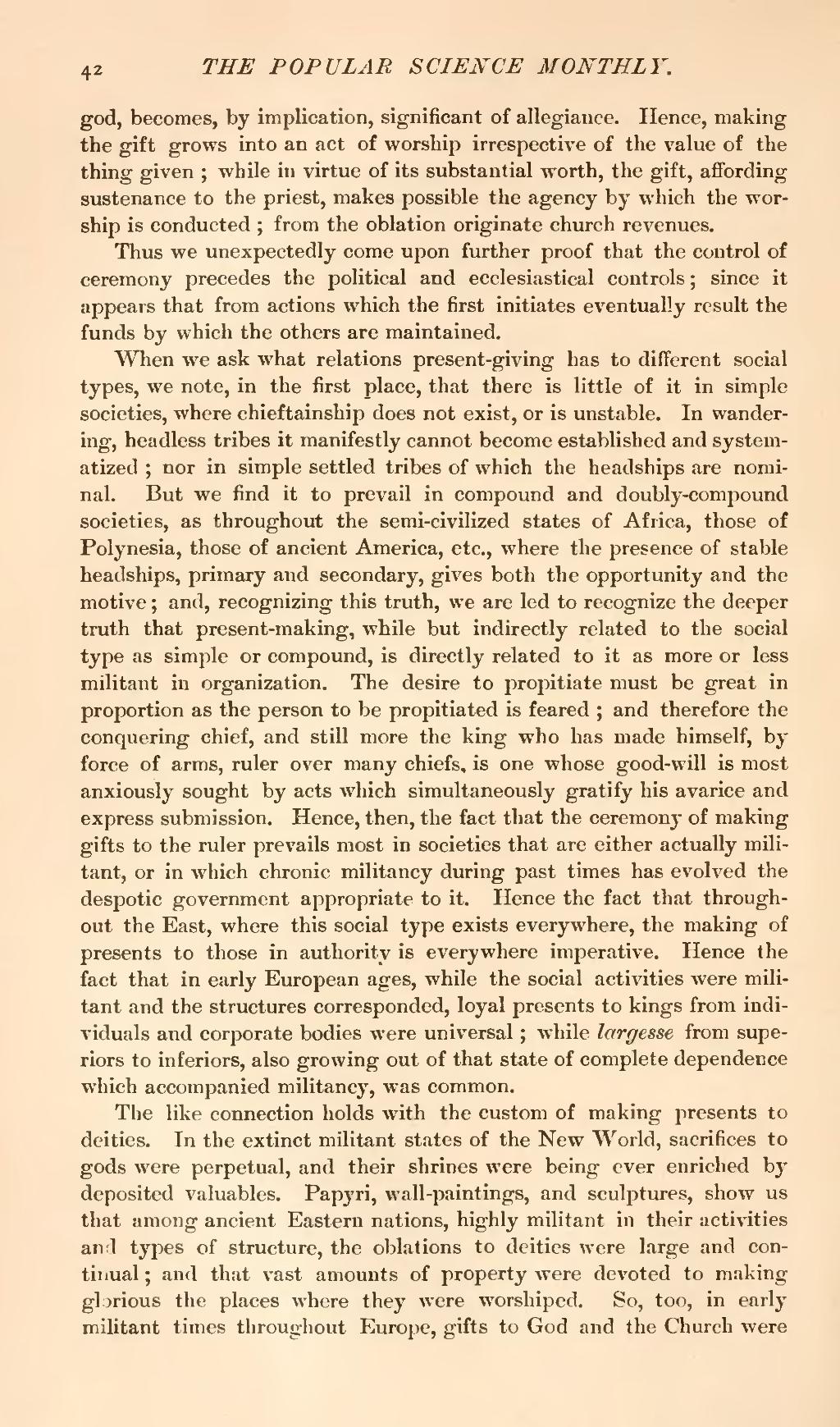god, becomes, by implication, significant of allegiance. Hence, making the gift grows into an act of worship irrespective of the value of the thing given; while in virtue of its substantial worth, the gift, affording sustenance to the priest, makes possible the agency by which the worship is conducted; from the oblation originate church revenues.
Thus we unexpectedly come upon further proof that the control of ceremony precedes the political and ecclesiastical controls; since it appears that from actions which the first initiates eventually result the funds by which the others are maintained.
When we ask what relations present-giving has to different social types, we note, in the first place, that there is little of it in simple societies, where chieftainship does not exist, or is unstable. In wandering, headless tribes it manifestly cannot become established and systematized; nor in simple settled tribes of which the headships are nominal. But we find it to prevail in compound and doubly-compound societies, as throughout the semi-civilized states of Africa, those of Polynesia, those of ancient America, etc., where the presence of stable headships, primary and secondary, gives both the opportunity and the motive; and, recognizing this truth, we are led to recognize the deeper truth that present-making, while but indirectly related to the social type as simple or compound, is directly related to it as more or less militant in organization. The desire to propitiate must be great in proportion as the person to be propitiated is feared; and therefore the conquering chief, and still more the king who has made himself, by force of arms, ruler over many chiefs, is one whose good-will is most anxiously sought by acts which simultaneously gratify his avarice and express submission. Hence, then, the fact that the ceremony of making gifts to the ruler prevails most in societies that are either actually militant, or in which chronic militancy during past times has evolved the despotic government appropriate to it. Hence the fact that throughout the East, where this social type exists everywhere, the making of presents to those in authority is everywhere imperative. Hence the fact that in early European ages, while the social activities were militant and the structures corresponded, loyal presents to kings from individuals and corporate bodies were universal; while largesse from superiors to inferiors, also growing out of that state of complete dependence which accompanied militancy, was common.
The like connection holds with the custom of making presents to deities. In the extinct militant states of the New World, sacrifices to gods were perpetual, and their shrines were being ever enriched by deposited valuables. Papyri, wall-paintings, and sculptures, show us that among ancient Eastern nations, highly militant in their activities and types of structure, the oblations to deities were large and continual; and that vast amounts of property were devoted to making glorious the places where they were worshiped. So, too, in early militant times throughout Europe, gifts to God and the Church were
